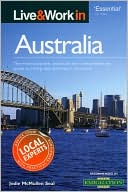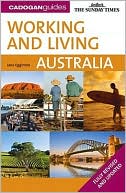Author: Shaun Hughston
Thousands of health professionals come to Australia each year looking for a new start, sun, sand, and the surf. Some even master surfing - but more learn how to fall from a surfboard! The sheer danger of some of the parts of our country is tempered by the absolute beauty and impressiveness of the natural features and very unique animals of Australia.
In Australia, we are exceptionally outgoing, confident, and always happy. Our personality, and the tendency to light-heartedly make fun of others sometimes bewilders, or shocks international visitors.
This article is the start of a series relating to how to start working in Australia as a health professional, and what you can do to get here - and have a successful career.
I have helped thousands of health professionals find work in Australia, and my company Beat Medical focusses on employment for doctors, dentists, physiotherapists, psychologists, senior nurses, and health managers. This article relates specifically to doctors.
The focus of this article is about what types of jobs are available in Australia, and what type of working conditions you can generally expect.
About the Australian Health System
The health system in Australia is largely a government funded, public healthcare system. It is of a very high standard, but is supplemented in part by a private healthcare system (funded by private paying patients, and health insurance companies).
It is not mandatory to have health insurance in Australia, as all citizens, and permanent residents are covered by the Medicare (www.medicare.gov.au) system - which is a federally funded system available to everyone. Healthcare is administered by the individual states around Australia through Public Hospitals. Visitors Australia from the UK, Sweden, the Netherlands, Finland, Norway, Malta, New Zealand, Republic of Ireland, and Italy are entitled to a limited amount of free healthcare in Australia.
Many Australians choose to take out private health insurance to supplement what the public system provides. This usually enables an individual to have their choice of doctor, and to stay in a private facility.
Most employment as a doctor in Australia is in a public hospital. There are different terms used in each region, but essentially there are four levels of doctor.
Interns are undergoing a supervised training year.
Residents are fully registered doctors, working in a general rotational position in a hospital.
Registrars are taking part in a speciality training program (equivalent to a resident in the USA).
Consultants are qualified specialists.
You would most likely be considering a position in one of the last three categories.
Medical Registration in Australia
The Australian Medical Council (http://www.amc.org.au/index.php/img) oversees the entry of international medical graduates into the Australian system. They have a very comprehensive and informative website, which you should review for information on how to become registered in Australia.
The Competent Authority model is one of the most straightforward ways to become registered in Australia. If your primary medical training was undertaken any of these countries, you are generally not required to complete any examinations to start work in Australia:?
United States of America
United Kingdom
Canada
New Zealand
Ireland
The standard pathway requires that you complete a multiple choice, and sometimes a clinical examination before commencing work in an Australian state.
The specialist pathway is for doctors who are trained as a medical specialist in their home country. This pathway is also dependent on the relevant medical training college in Australia - as they will be the body responsible for assessing your qualifications and experience before recommending you to be registered in Australia.
As medical registration is a state based matter, the rules vary from state to state.
When you apply for a position in Australia, the recruitment company or hospital you are dealing with will generally assist you through the registration process.
Working Visas
Australia has very strict immigration policies, which are governed by the Australian Department of Immigration and Citizenship. Depending on your country of origin, there are a number of visas that may be appropriate for you. The most common method of entry, though, is the 457 Temporary Business (Long Stay) Visa (http://www.immi.gov.au/skilled/skilled-workers/sbs/). This visa requires sponsorship from an employer, and quite a detailed process for entry. It is relatively straightforward, though, and most can be managed online.
Working conditions
In Australia, the general working hours a 38-40 hours per week (0800-1700). As you can imagine, however, the working hours for a doctor are significantly different from the norm.
It is quite variable, but you can expect to work an additional 20 hours or so per week in overtime (which is generally paid at a higher rate). Those working in shift-work (for example in Emergency or Intensive Care) will work four or five twelve hour shifts per week, as well as some overtime.
The pay is quite variable, as it is state-based. However, the salaries in Australia are quite significant in comparison to many other countries. They are generally considered appropriate in relation to the cost of living in Australia.
In broad terms, as a resident you can expect to earn a base (before overtime) salary of between $60-70k per annum. As a registrar, $75-90k per annum, and a consultant $150k + per annum. These figures are open to significant variation, and simply provide a guide.
In Australia, employers are legally required to contribute at least 9% of your salary towards a superannuation (retirement) fund. You have complete control over how this fund is managed. You may be able to claim all of this money back if you depart Australia. Otherwise, it cannot be accessed until you are retirement age.
Taxation in Australia is relatively high, as we have a very high level of social services funded by the government. Go to the Australian Taxation Office (ATO) website for more information. You would generally be considered resident for taxation purposes if you are here for an extended period.
How to find a position
You can find a position through many of the job websites such as www.seek.com.au,
www.careerone.com.au, or www.mycareer.com.au. You can also access the individual health department websites, which all have job search engines.
There are a number of recruitment agencies in Australia who can assist you with the process of finding a position, and dealing with medical registration, working visas, relocation, and contract negotiation. Not all companies are the same, or offer the same level of service and quality. You should never pay a recruitment company in Australia (they should charge the employer).
We can be contacted at any time on +61 2 8014 0175, via recruit@beatmedical.com.au, through skype (user name: beat medical), our our website www.beatmedical.com.au.
We offer a no-obligation consultation, and will work with you to access the ‘hidden’, unadvertised employment market - which is often where the best jobs are found.
Next time:
How to write a stand out resume (the Australian way!). Yes, there is an Australian way to write a resume (C.V). It may mean the difference between an interview - or no interview.
About the Author:
Shaun Hughston is the Director of Beat Medical, a health recruitment company based in Australia.
Article Source: ArticlesBase.com - Working in Australia as a doctor
Change your life! Work in Australia! Australia is looking for skilled and experienced people. If that’s you, then you’re already a step closer to your new life in Australia. Find your dream job now in Australia.
Working in Australia as a doctor
Labels: jobs in australia
Subscribe to:
Comments (Atom)





